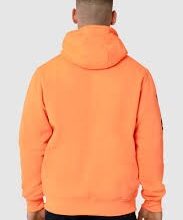Unveiling the Beauty of Pakistani Formal Dresses
Pakistani formal dresses are renowned for their exquisite craftsmanship, vibrant colors, and intricate designs. From weddings to festive occasions, these dresses hold a special place in Pakistani culture, reflecting tradition, elegance, and sophistication. In this comprehensive guide, we delve into the allure of Pakistani formal attire, exploring its history, cultural significance, popular styles, and shopping tips.
The Rich Heritage of Pakistani Formal Dresses
Pakistani formal dresses carry a legacy of centuries-old craftsmanship and cultural heritage. Influenced by Mughal and Persian aesthetics, these dresses boast elaborate embroidery, luxurious fabrics, and timeless silhouettes. Each region in Pakistan has its distinct style, incorporating local motifs and techniques. Whether it’s the regal attire of Punjab, the intricate embellishments of Sindh, or the graceful drapes of Balochistan, Pakistani formal dresses celebrate diversity while embodying elegance and grace.
Exploring Cultural Significance
Formal attire in Pakistan holds immense cultural significance, representing the wearer’s social status, heritage, and sense of identity. Traditional garments like the shalwar kameez for women and sherwani for men are often adorned with intricate beadwork, zardozi embroidery, and silk thread motifs, symbolizing prosperity and auspiciousness. These dresses are not just garments but cultural symbols that evoke a sense of pride and belonging, cherished by generations and passed down as heirlooms.
Evolution of Pakistani Formal Fashion
Over the years, Pakistani formal fashion has evolved to blend traditional aesthetics with contemporary trends. Designers experiment with cuts, colors, and fabrics, infusing modern elements into classic designs to cater to changing tastes and preferences. While traditional handcrafted ensembles remain timeless, there’s a growing demand for fusion wear that combines Eastern and Western elements, catering to a global audience while preserving cultural authenticity.
Popular Styles and Fabrics
Pakistani formal dresses come in a myriad of styles, each catering to different occasions and preferences. From the opulent Anarkali frocks to the elegant lehenga cholis, and the sophisticated saris, there’s a plethora of options to choose from. Fabrics play a crucial role in defining the look and feel of these dresses, with luxurious materials like silk, chiffon, velvet, and organza being favored for their drape and sheen.
Shopping Tips for Pakistani Formal Dresses
When shopping for Pakistani formal dresses, consider the following tips to ensure you find the perfect ensemble:
- Research: Familiarize yourself with different styles, designers, and trends to narrow down your choices.
- Budget: Set a budget beforehand to avoid overspending, but be willing to invest in quality craftsmanship and fabrics.
- Fit: Pay attention to measurements and alterations to ensure the dress fits you perfectly.
- Authenticity: Purchase from reputable designers or stores to guarantee authenticity and quality.
- Customization: Explore customization options to personalize your dress and make it truly unique.
Frequently Asked Questions (FAQs)
Q: What are some traditional Pakistani formal dresses?
A: Traditional Pakistani formal dresses include the shalwar kameez, lehenga choli, Anarkali frocks, saris, and sherwanis.
Q: Where can I buy Pakistani formal dresses?
A: Pakistani formal dresses are available at various outlets, including designer boutiques, online stores, and specialty shops that cater to South Asian fashion.
Q: What is the significance of embroidery in Pakistani formal dresses?
A: Embroidery in Pakistani formal dresses symbolizes craftsmanship, cultural heritage, and prosperity. It often incorporates intricate patterns and motifs inspired by nature, architecture, and traditional motifs.
Q: How do I choose the right fabric for a Pakistani formal dress?
A: Consider factors such as the occasion, climate, and personal preference when choosing fabrics. Luxurious materials like silk, chiffon, and velvet are popular choices for their elegance and drape.
Conclusion
Pakistani formal dresses epitomize the essence of tradition, elegance, and craftsmanship. With their rich heritage, cultural significance, and timeless appeal, these dresses continue to captivate audiences worldwide, transcending borders and generations. Whether it’s a wedding celebration, festive event, or cultural gathering, Pakistani formal attire serves as a testament to the country’s artistic legacy and sartorial excellence.



